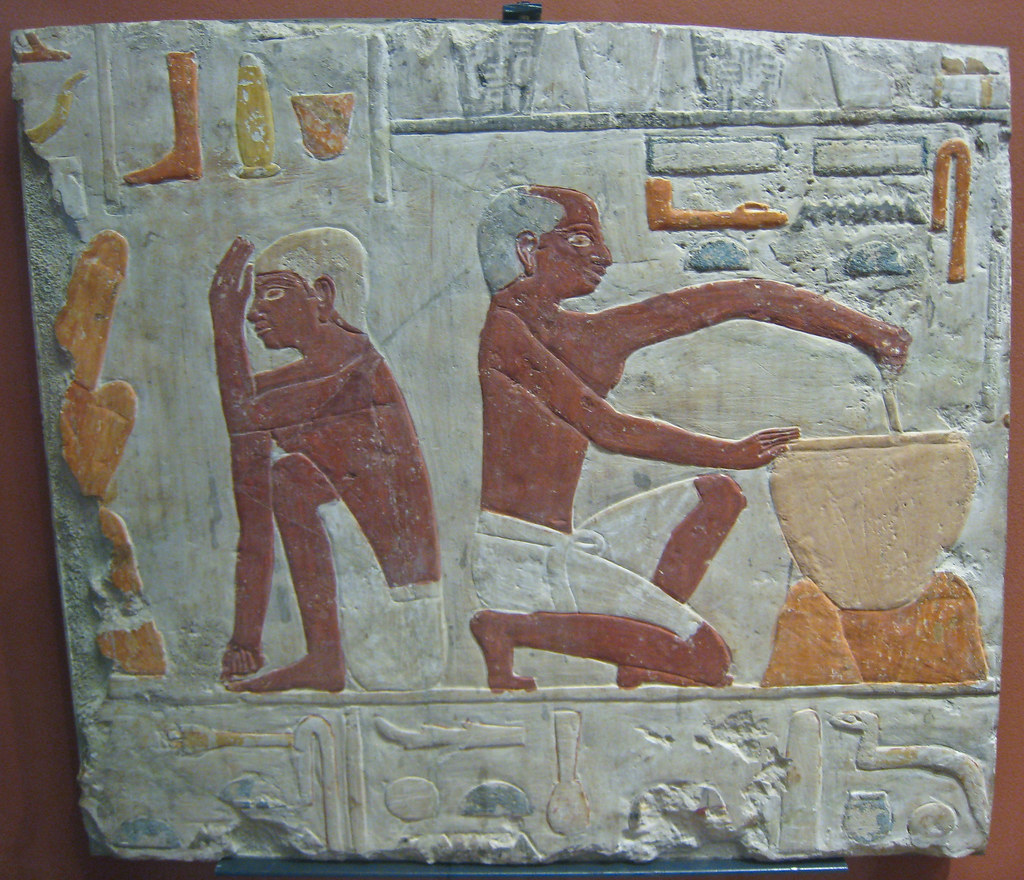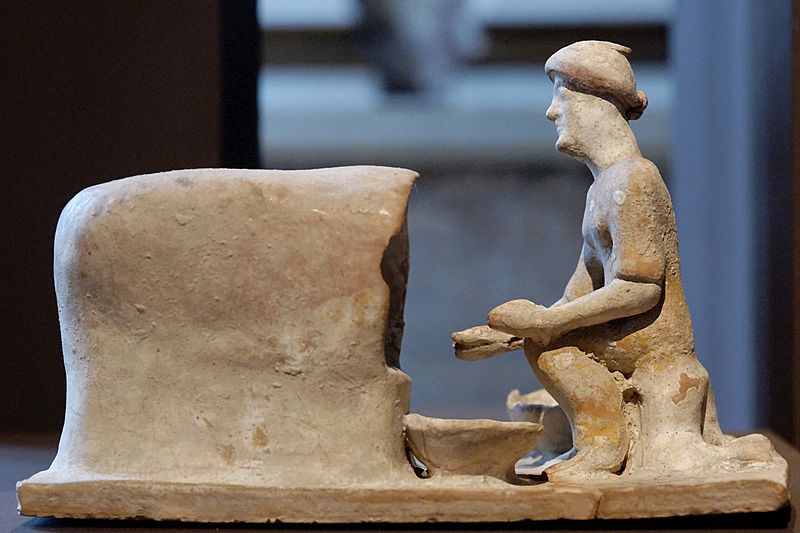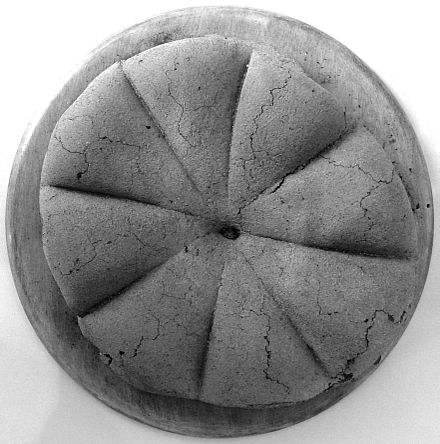You’ve probably never given your lunch a second thought. How did bread become the worldwide sensation it is today? If one dares to go back in time, it is apparent how the consumption of certain foods came to symbolize the advancement of our species and the growth of civilization. In particular, staple foods like bread faithfully accompanied mankind like a puppy would its master.
You can find the second part of our Ancient History of Bread here.
Bread was born in Egypt around 4000 BCE which makes it at least a 6000-year-old folk. Before you ask, I have no idea which cosmetics it uses to remain in such good shape; you’re going to have to find that out for yourself. What I can illustrate instead concerns the circumstances of its childhood. Its parents, the ancient Egyptians, were different from their contemporaries specifically in the use of wheat.
While most populations would manage their cereals by roasting them on hot stones and mixing them with water to create a sort of dough, the Egyptians were able to discover true magic hidden in natural elements. They would in fact leave a mixture of water and emmer wheat flour outside on a warm sunny day and stand there in awe, witnessing a seemingly supernatural transformation. The dough’s volume would start increasing more and more, resembling the beating heart of a fetus, thanks to the miracle of fermentation. Mixing this astonishing creation with regular food would have been sacrilegious according to the Egyptians, because they saw divine forces at work on bread. Fermentation was considered a magical incident and a manifestation of the gods’ power, hence, a food which had been transfigured by celestial incantation had to be separated from the impurity of earthly life. Cooking it in isolation was a theological necessity. This belief led to the creation of a home from which the creature could emerge tastier than ever: the oven.

Credit: Sharon Molerus, Flickr
These rudimentary ovens were of cylindrical shape and typically Egyptian in the sense that they were built with bricks of clay picked up from the Nile’s shores. Important was the large opening on top of the oven which allowed for gas emissions. Before entering this smoky maternal womb, the dough would be salted and manipulated; subsequently they would use a paddle to insert it into the oven, which remains a standard procedure to this day. Just like many aspiring modern bakers, the workers and families of Ancient Egypt would surely also open the oven obsessively, to check if the bread was ready.
As expertise grew and demand rose from all classes and corners of Egypt, one type of bread was no longer enough. Consequently not only did Egyptians increase the amount of bread being baked, but they began experimenting with different ingredients. By adding poppy seeds, sesame, and camphor, they originated more than 50 different kinds of bread. Needless to say, the popularity of our friend was stellar; everybody was talking about it and had bread in the house (or on the camel). From the pharaoh to the lowliest of workers, bread consumption bridged the gaps in society.
However, it was also a social marker – only the affluent could afford a varied diet, in which bread represented one necessary component, whilst poor individuals ate bread and bread only, day in and day out. The flipside of this seemingly monotonous diet was that the poorest workers, who did most of the heavy manual labour which pushed society forward and made Egypt iconic, were gathering nutrients exclusively from bread. So much so that in some surviving papyri, it was written that the delays in constructing the pyramids were caused by an insufficient bread supply for the labourers. It was implied for the first time that bread was instrumental in progress because it came to incarnate life’s essence: survival, and gave mankind the chance to pursue ruthless innovation.
If you find yourself overwhelmed by the historical relevance of bread and are now on the verge of becoming fearful of its presence in your home, take a deep breath and relax; it’s less intimidating than it seems. Our friend didn’t just wake up one day adored, fashionable, and powerful. It was a long process, spiced up by continuous risk-taking and mixed fortunes. The first step towards bread’s global expansion was its voyage to Greece, a destination which allowed for self-discovery and experimentation.

Credit: GreeceHighDefinition.com
Greek seamen and merchants filled their ships with Egyptian flour and travelled across the dark, stormy Mediterranean until they reached their homeland’s safe shores, where our friend’s first migration was complete, and bread began establishing itself as a protagonist in the Greek culinary scene. Herodotus in the fifth century BCE wrote that after docking, the Greeks didn’t limit themselves to the use of Egyptian flour; they were careful to imitate the Egyptians’ peculiar kneading technique. In fact, the Egyptians kneaded bread with their feet, a practice which was then adopted in Greece and remained present in parts of Europe at least until the nineteenth century.
Greek creativity, according to other ancient sources like Athenaeus, aided in the production of 72 bread varieties. The most common was barley bread, which was consumed daily and destined to the lower classes. Wheat bread was one of the most expensive loaves, which according to Solon, was only produced during festivities.
Additionally, the Greeks consolidated the link between bread and religion. While the Egyptians used bread in ceremonial burials by placing it in the tombs of deceased individuals with the hope of helping them feed themselves in the afterlife, the Greeks would directly offer food to the gods using a special ritual bread called psadista, made of flour, oil, and wine. Another crucial development brought about by the Greeks in the fifth century BCE was the establishment of the first bakeries in Athens, which would be replicated and enhanced by the Romans only in the second century. Greek also has the first account of a baker described as a true master of the craft; moreover, a certain Thearion enjoyed great popularity in his days, and this notoriety is reflected in various ancient writings, describing him as an exceptional individual, capable like no other to nurture the body through his products.
Greece in this period is often portrayed as a utopia of knowledge, filled with extravagant thinkers as well as skilled warriors; philosophy prospered, education was deemed of the utmost importance, and art flourished in iconic proportions. Roman conquest, in the second century BCE didn’t alter these core characteristics, it simply flooded the Roman Empire with Greek brilliance.

Credit: WikiWand.com
Horace is known for having written that ‘Captive Greece captured her rude conqueror’, meaning that the Romans fell in love with Greek culture, importing its most interesting aspects to their previously austere agricultural society. Obviously, not every Roman was attracted to these new ideas and practices. As often happens today, conservatives and fundamentalists rejected the apparent softening of the world with force. For instance, Cato, a legal professional and public official, left behind a manual destined to his son, in which he warned against the use of Greek flours, whose spread across Roman territory was considered an alarming sign of decadence.
However, adverse individuals were unsurprisingly unable to halt progress. Hence a cultural revolution took place, mainly through the influx of Greek slaves serving as preceptors in Roman aristocratic families. Leavening was one of the innovative concepts these people brought to Rome. All of a sudden, Bread found itself dangerously close to the springs of power, trapped in the center of Roman political intrigues. In this new, ruthless environment, blood was shed, tears were dropped, and tummies were filled. But that’s a topic for the next carbohydrate-rich article.
Further readings :
Fouser, D. (2016). The Global Staff of Life: Wheat, Flour and Bread in Britain, 1846-1914 [Doctoral dissertation, University of California Irvine]. Escholarship https://escholarship.org/uc/item/3sv6d7sx
Writes about English bakers kneading with their feet in the 19th century
Herodotus (2015). The Histories. Penguin Classics Reprint edition.
In Book two he mentions Greeks imitating the Egyptians in kneading with their feet
Jacob, H.E. (2016). Six thousand years of bread: its Holy and Unholy history. Haruaki Publishing.
Egyptian belief in magic and he writes that cooking bread with other foods was seen as sacrilegious
Kourkouta, L., Koukourikos, K., Iliadis, C., Ouzounakis, P., Monios, A., & Tsaloglidou, A. (2017). Bread and health. Journal of Pharmacy and Pharmacology, 5(11), 821-826.
References Egyptian papyri : insufficient bread supply for pyramid workers
Manetta, C. (2016). ” Our Daily Bread” in Italy: Its Meaning in the Roman Period and Today. Material Culture, 28-43.
Cato and his hostility towards Greek flours





Comments are closed for this article!